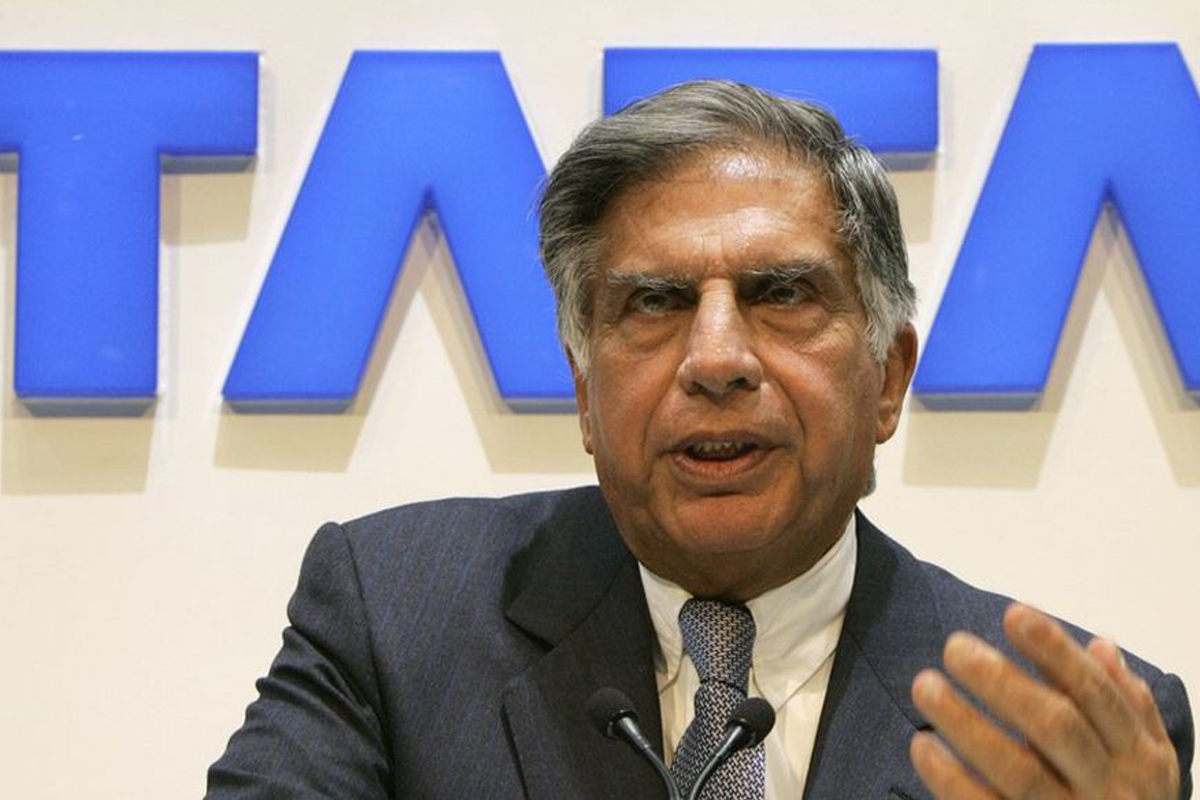EV maker Ampere’s revenue declines by 46 pc to Rs 612 crore in FY24
Electric vehicle (EV) maker Ampere's total income from operations in FY24 declined by 46 per cent to Rs 612 crore, from Rs 1,124 crore in FY23.
Tata Sons, Chairman Emeritus Ratan Tata and Tata Consultancy Services (TCS) have separately moved the Supreme Court against the NCLAT order.

Late Tata Sons, Chairman Emeritus Ratan Tata. (Photo: AFP)
The National Company Law Appellate Tribunal (NCLAT) on Monday rejected the plea by the Registrar of Companies’ (RoC) petition seeking modification of the judgement in the Tata-Mistry case and said its ruling had not cast any aspersions on the RoC.
“There is no ground to amend judgement dated December 18, 2019,” a two-member NCLAT bench said.
Advertisement
The NCLAT had in its December 18 verdict termed the RoC’s decision to allow conversion of Tata Sons from public to private as illegal and RoC had filed a plea at the appellate tribunal to remove the word “illegal” used by the NCLAT in its 172-page-long judgement.
Advertisement
Tata Sons, Chairman Emeritus Ratan Tata and Tata Consultancy Services (TCS) have separately moved the Supreme Court against the NCLAT order.
The tribunal had termed the appointment of N Chandrasekaran, as ‘illegal’ following the October 2016 sacking of Mistry as Tata Sons’ executive chairman. It had also directed the RoC to reverse Tata Sons’ status from a ‘private company’ to a ‘public company’.
The two-judge bench headed by NCLAT Chairman Justice S.J. Mukhopadhaya observed that the judgment did not cast any aspersions on the RoC. The bench had reserved its order in the matter on Friday saying that it would clarify that its order terming RoC decision of allowing Tata Sons to convert from public to private as ‘illegal’ did not cast any aspersion on the RoC.
Mukhopadhaya said that the NCLAT can only clarify and not change the judgement, adding that the Supreme Court, being the highest judicial authority can change the judgement if it finds it incorrect.
The tribunal had said that the action taken by the RoC to allow the firm to become a private company was against the provisions of the Companies Act, 2013 and ‘prejudicial’ and ‘oppressive’ to the minority member (Mistry Camp).
Tata Sons Ltd was initially a ‘Private Company’ but after insertion of Section 43A (1A) in the Companies Act, 1956 on the basis of average annual turnover, it assumed the character of a deemed ‘Public Company’ with effect from February 1, 1975, the order said.
Meanwhile, Cyrus Mistry on Sunday ruled out pursuing chairmanship of Tata Sons or any other executive positions at group entities but asserted that he is interested in a board seat at the holding company.
Ruling out taking up any position at the group or any group entities, Mistry in a late Sunday evening public statement said that he is “walking the talk” to uphold corporate governance, and this is not a quest for position or power and he “will not be pursuing the executive chairmanship of Tata Sons, or directorship of TCS, Tata Teleservices or Tata Industries”.
(With input from agencies)
Advertisement